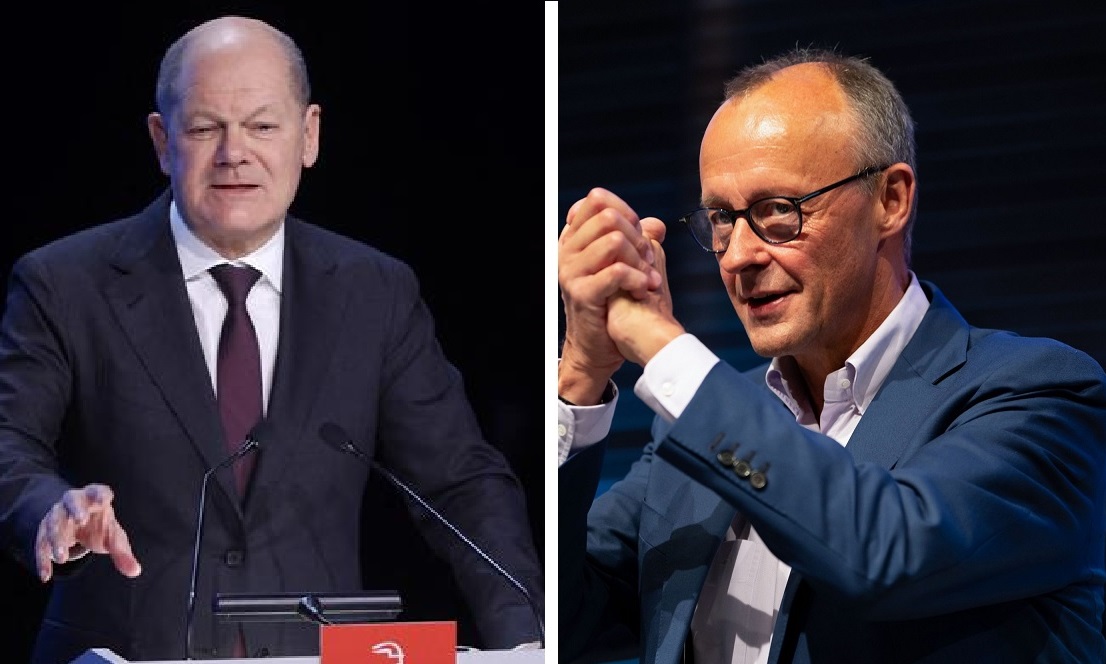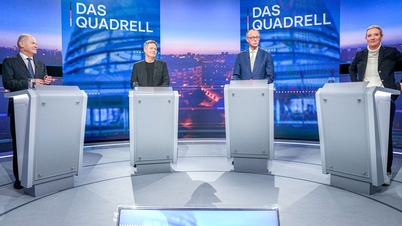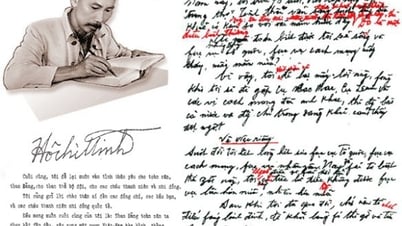(CLO) The German parliament accepted Chancellor Olaf Scholz's appeal for a vote of no confidence in him and his government on Monday, paving the way for an early election on February 23.
Mr Scholz lost a confidence vote that he called a step towards securing an early national election, with 394 votes against, 207 in favour and 116 abstentions.
Scholz's three-party ruling coalition fell apart last month after the Free Democrats withdrew over a debt row, leaving his Social Democrats (SPD) and Greens without a majority in parliament.
Mr Scholz will remain in charge of the caretaker government until a new one is formed. He said that if he is re-elected for a second term, he would invest heavily in Germany's ailing infrastructure rather than cut spending as the conservatives want.

Chancellor Olaf Scholz and conservative leader Friedrich Merz. Photo: internet
“Shortsightedness may save us money in the short term, but the mortgage on our future is unaffordable,” said Mr Scholz, a former finance minister.
His rival Friedrich Merz, leader of the conservative CDU/CSU coalition, told Mr Scholz that his spending plans would burden future generations and accused him of failing to deliver on a promise to re-arm after the war in Ukraine broke out. “The debt is at the expense of the younger generation,” Mr Merz said.
According to polls, the CDU/CSU has a clear advantage over the SPD. The far-right Alternative für Deutschland (AfD) is also slightly ahead of Mr Scholz's party, while the Greens are in fourth place.
The mainstream parties have refused to cooperate with the AfD, but its presence complicates the situation, making it harder to form a new governing coalition after the upcoming snap election.
Huy Hoang (according to DW, Reuters, Bild)
Source: https://www.congluan.vn/thu-tuong-duc-khong-vuot-qua-duoc-cuoc-bo-phieu-tin-nhiem-bau-cu-som-se-dien-ra-post325947.html



![[Photo] President Luong Cuong presents the 40-year Party membership badge to Chief of the Office of the President Le Khanh Hai](https://vphoto.vietnam.vn/thumb/1200x675/vietnam/resource/IMAGE/2025/5/19/a22bc55dd7bf4a2ab7e3958d32282c15)
![[Photo] Panorama of the Opening Ceremony of the 43rd Nhan Dan Newspaper National Table Tennis Championship](https://vphoto.vietnam.vn/thumb/1200x675/vietnam/resource/IMAGE/2025/5/19/5e22950340b941309280448198bcf1d9)

![[Photo] General Secretary To Lam attends the conference to review 10 years of implementing Directive No. 05 of the Politburo and evaluate the results of implementing Regulation No. 09 of the Central Public Security Party Committee.](https://vphoto.vietnam.vn/thumb/1200x675/vietnam/resource/IMAGE/2025/5/19/2f44458c655a4403acd7929dbbfa5039)
![[Photo] Close-up of Tang Long Bridge, Thu Duc City after repairing rutting](https://vphoto.vietnam.vn/thumb/1200x675/vietnam/resource/IMAGE/2025/5/19/086736d9d11f43198f5bd8d78df9bd41)























































































![[VIDEO] - Enhancing the value of Quang Nam OCOP products through trade connections](https://vphoto.vietnam.vn/thumb/402x226/vietnam/resource/IMAGE/2025/5/17/5be5b5fff1f14914986fad159097a677)


Comment (0)